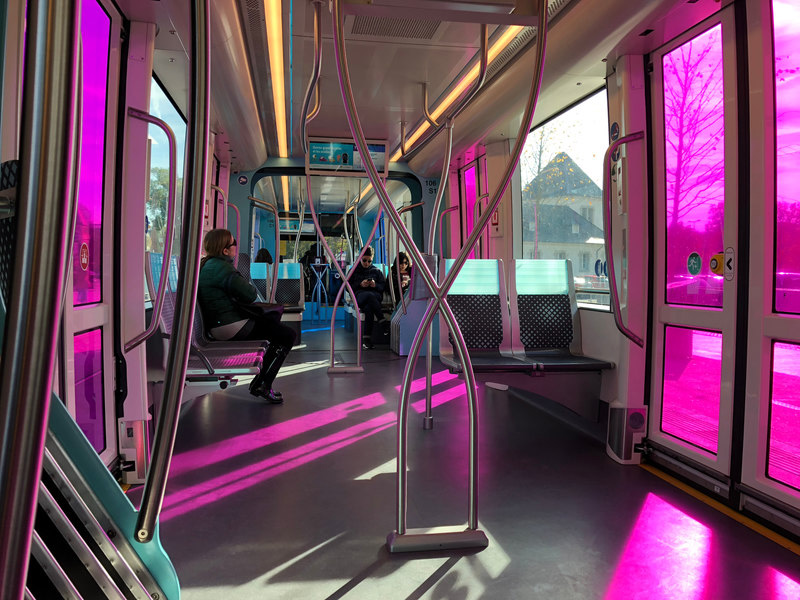
Co-working in Luxembourg, a mobility solution?
13 января 2020 г.
With a constantly growing number of cross-border workers, Luxembourg is forced to find mobility solutions that allow everyone, residents and cross-border workers alike, to move around the country easily. For their part, employers and freelancers can count on the establishment of pleasant and functional co-working spaces in the territory, limiting the need for transport and reducing the stress caused by traffic jams. However!
200,000 cross-border workers on the roads of Luxembourg
Each day, 200,000 people cross the German, Belgian or French border to come and work in Luxembourg, a figure that is constantly growing according to Statec statistics: 35,000 in 1990, 90,000 in 2000 and 150,000 in 2010.
Every day, these 200,000 cross-border workers are added to the 613,894 Luxembourg residents (Source, Statec on 1 January 2019). With an increase of more than a third of its population, the Grand Duchy is struggling to find solutions to ease traffic congestion. Daily traffic jams on the A1, A3 and A6 and ever more frequent slowdowns on the A4 autoroute make the commute to and from work increasingly difficult for both cross-border workers and residents.
Mobility: Luxembourg faces a challenge
Despite a high quality road and rail network, getting around Luxembourg is a challenge and this is no longer just during rush hour. The reason is an influx of vehicles despite the various mobility solutions implemented by the state: tram, bus, train and over 100 Vel'oh (bike rental) stations. The problem is, to be able to use public transport leading to the main activity zones, motorists must go to one of the Park and Ride areas which often prove to be saturated.
Did you know? Only 19 % of home/work journeys are made using public transport and only one in two people living less than 1 km from their place of work make the journey on foot.
Mobility challenge: quicker journeys than by car
Other mobility projects will be implemented in the territory but these will only be in the longer term. The idea: to offer public transport that will ensure journeys that are quicker than they would be if made by car. This will be the case, for example, with an express tram line running along the A4 between Esch-sur-Alzette and Kirchberg. This project will see the light of day in 2035.
With the centre of the country in the grip of mass urbanisation, the state is faced with a dilemma: create new access points to facilitate traffic flow at the risk of deforming the natural landscapes that are so representative of the country.
But can Luxembourg act alone to improve mobility? Not really. For cross-border workers, the solution would lie in improving the cross-border public transport network and building parking areas large enough to guarantee enough space for the vehicles of train and bus users. This means works and improvements that would need to be carried out on both sides of the border and which would, therefore, require the intervention of the four countries concerned.
Should traffic flow be improved or limited?
While some people are working on mobility solutions in Luxembourg, others are interested not in simplifying travel but rather in reducing it. Co-working spaces, which formerly were mainly located in city centres or near stations and airports, are beginning to develop along the Luxembourg borders.
The idea? To provide well thought out workspaces offering a comprehensive service to renters without them having to go to areas that are saturated with traffic. Very popular with freelancers and self-employed workers, co-working spaces are now also of interest to companies which can rent out-of-town offices there, allowing some of their employees to limit the amount of journeys they make.
.Co-working, a legal alternative to teleworking.
Since teleworking is heavily regulated by law, notably for tax reasons, co-working on Luxembourg territory would allow cross-border workers to increase their number of working days outside the company.
Did you know? Today, Belgium allows 24 days of telework per year. France allows 29 and Germany 19. For its part, the NCF (National Council for Foreigners) is demanding the standardisation of the quota for teleworking days, increasing it to 56 for cross-border workers from the three countries
Is co-working a mobility solution?
Yes and no. It is clear that co-working spaces are mainly established in the centre of the country or in its large towns. There are, however, a few outlying locations, notably in Windhof or Bettembourg. These could unclog Luxembourg city centre and its surroundings without, however, providing a solution on either side of the borders.
In the meantime, daily, monthly or yearly rentals of offices or workspaces are attracting more and more freelancers. Modern infrastructures and the possibility of building a professional network are the great advantages of these places. Regus, Urban Office, Silversquare and The Office all offer services worthy of the biggest companies with the spirit of the committed start up.
Mobility in Luxembourg remains a great challenge requiring the commitment of everyone: the state, local authorities, employees and companies. Improving public transport networks, filling up cars, promoting soft mobility, are all solutions that would simplify travel in the country.